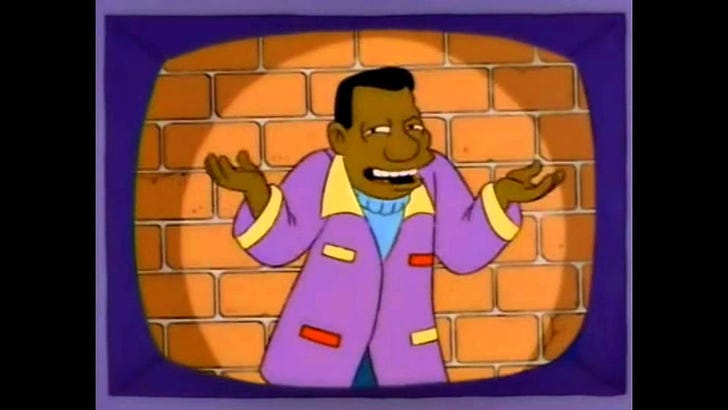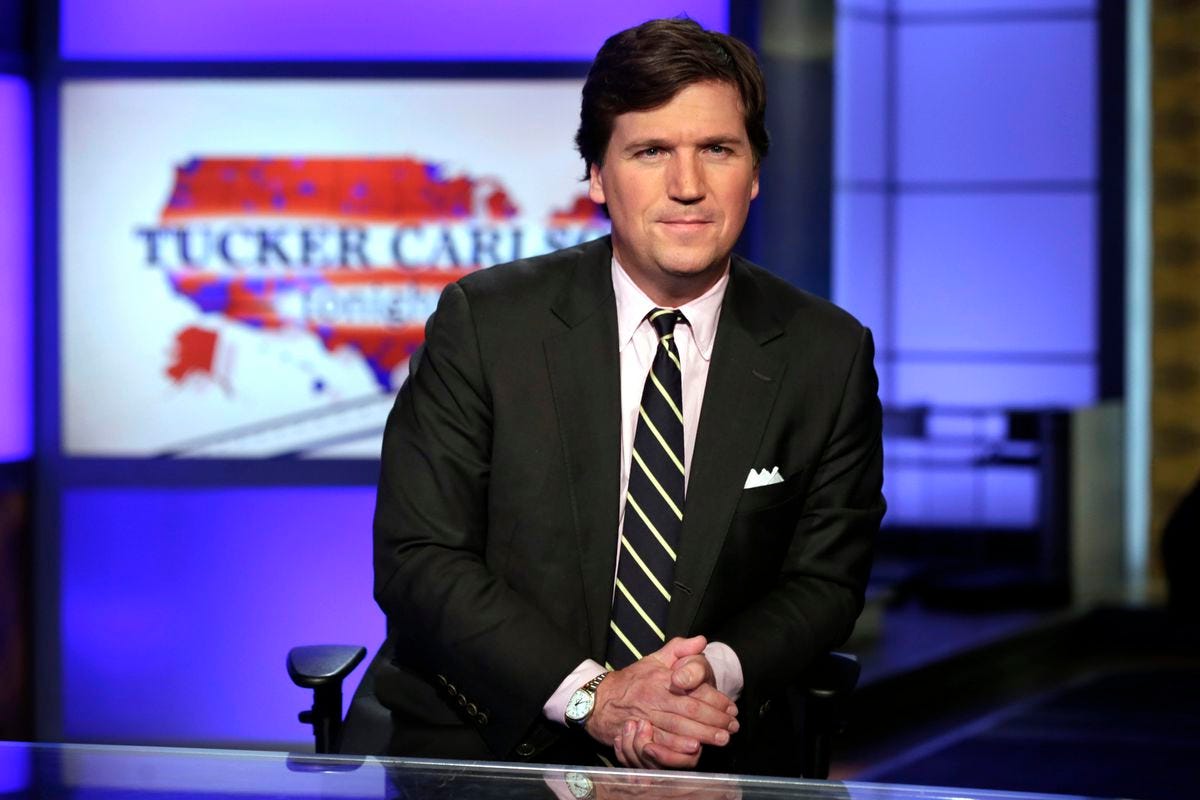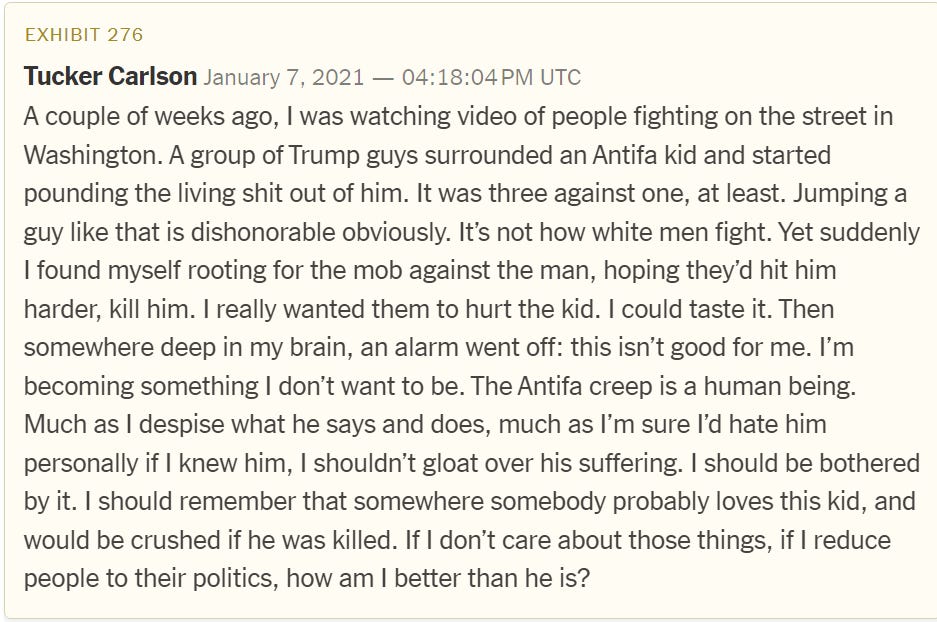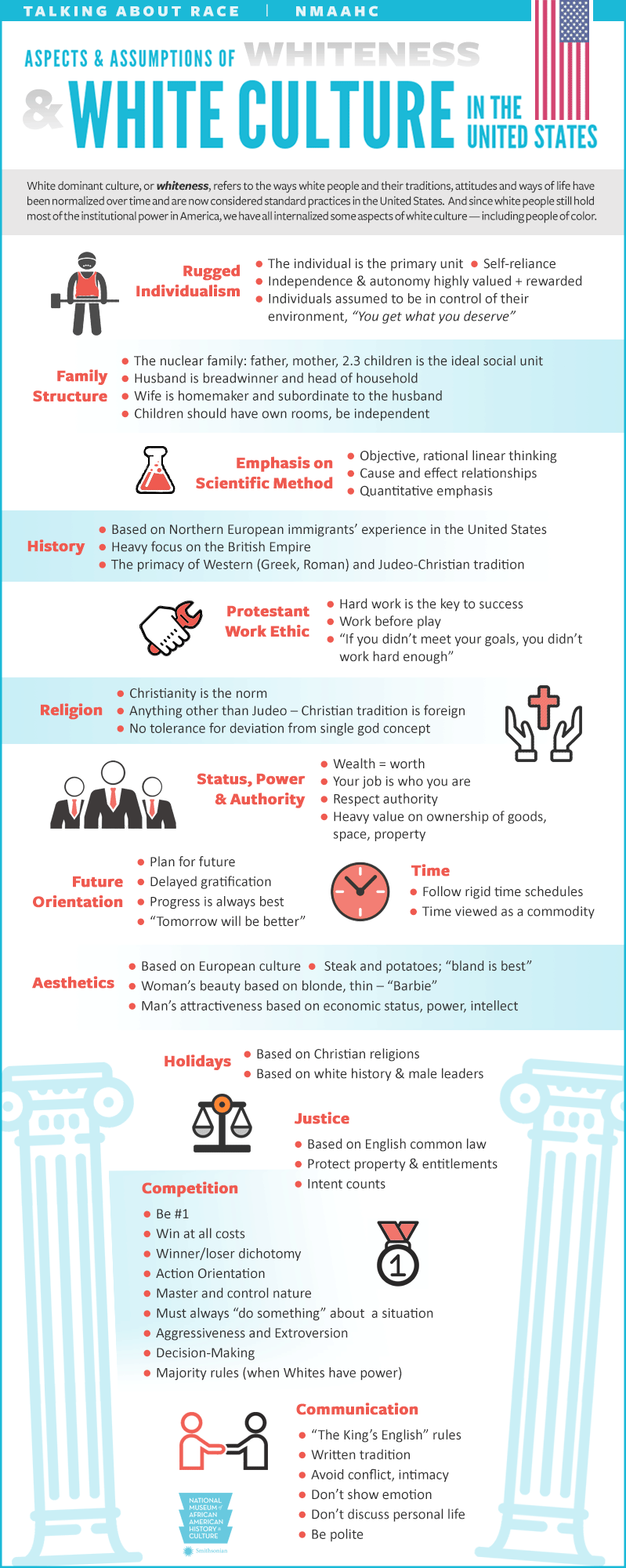Tucker Carlson and the Limits of White Self-Identification
Who gets to decide racial identity?
A comedian comes on stage. “Yo, check this out,” he says. “Black guys drive a car like this.” He makes an exaggerated gesture to demonstrate how Black men purportedly drive.
“But White guys,” he continues, “see, they drive a car like this.” He makes a similar exaggerated gesture, but this time to demonstrate how White men purportedly drive.
The shot changes. We see Homer Simpson watching the TV and laughing uproariously at the comedian. “It’s true, it’s true,” Homer says. “We’re so lame”.
The above clip is from a 1994 episode of The Simpsons. As always, The Simpsons brilliantly lampoons a popular but formulaic style of comedy, one in which pretty much every nonwhite comedian has cut their teeth on.
A few years ago, I noted how every single comedian of color made race jokes. Jokesters like Dave Chapelle, Carlos Mencia, and Ali Wong elicited many a guffaw with their racially-charged humor. It was like a form of affirmative action: it was socially unacceptable for White comedians to joke about race, but because audiences still had an appetite for race jokes, this led to an easy market for any nonwhite comedian to peddle humorous racial observations. Chris Rock’s most famous standup routine is called “N****as vs. Black People”. Dave Chappelle’s “Racial Draft” skit delightfully mocked every racial group in America.
Many people are uncomfortable talking about race. I’ve said this before, and I’ll say it again: race is the most controversial issue in America. Comedy, though, has broken through America’s biggest racial taboos. Take this classic Saturday Night Live skit about the rise of Jeremy Lin:
The skit involves three comedians playing sports commentators. The two Black commentators make highly offensive jokes about Jeremy Lin’s race, to massive applause. But when the White commentator tries to make jokes about Black athletes, he is chastised and ends up being removed. To this day, I am stunned at how accurate this skit was to showing how Americans think about race: it’s okay to make fun of Asian Americans, but you can’t ever make fun of Black Americans. This one skit portrayed the social position of Asian Americans much better than a thousand thinkpieces ever could.
This brings us to Tucker Carlson. As most of you know by now, he was the most-watched political commentator in America before he was fired from his show on Fox News. An alleged reason behind his firing was a leaked text message he sent after he saw a video in which multiple Trump supporters attack an Antifa member in Washington D.C.
The full text message shows a human side to Tucker. He notes that he initially had a primal feeling to see the Trump supporters beat up the Antifa supporter: to see his tribe defeat the enemy tribe. But then he realizes just how disturbing that thought is. He realizes that there are people out there who love the Antifa guy and would be devastated if he was killed. His final sentence is a message of unity: “If I reduce people to their politics, how am I better than he is?”
What the leaked text message should’ve shown people was that despite all our differences, we are all still human. Despite Tucker going after his ideological enemies every night, he still saw them as human beings with hopes and dreams and desires and people that love them. In an age of extreme political polarization, Carlson delivers a surprisingly empathetic message about his opponents.
But the media chose not to focus on this message. They zeroed in on where Carlson wrote, “Jumping a guy like that is dishonorable obviously. It’s not how white men fight.”
When I first read that sentence, I thought back to that Simpsons skit. Black people do this, White people do that. This has been the bread-and-butter approach for comedians of color for decades now. We all know that all races are stereotyped in their own ways, but only through comedy do the sentiments become acceptable to say.
So does the controversy come from a White person making generalizations about White people?
No. When Robin DiAngelo makes broad generalizations about White people in her book White Fragility, she is celebrated for doing so. Critical race theory itself revolves around making sweeping statements about racial groups. And who could forget this chart from the National Museum of African American History and Culture?
Indeed, “antiracist” activists themselves have come up with a definition for what “White culture” entails in America. So why are they so mad that Tucker Carlson is attempting to define a trait about White people as a whole?
In 2008, Christian Lander, a White man, started a blog called “Stuff White People Like”. The blog became extremely popular, racking up over 100 million pageviews. Among the stuff that White people purportedly like include Toyota Priuses, Threatening to Move to Canada, San Francisco, Veganism, Having Two Last Names, and Public Radio. Looking through the list, it becomes clear that this blog isn’t what White Americans like as a whole. It’s what White liberals like. Indeed,
Although the blog "has spurred an outpouring from those who view it as offensive and racist", it is not about the interests of all white people, but rather a stereotype of affluent, environmentally and socially conscious, anti-corporate white North Americans, who typically hold a degree in the liberal arts. Lander claims to be lampooning contemporary versions of bohemian/hipster culture, and jokingly refers to other classes and subcultures of white people as "the wrong kind of white people".
“Stuff White People Like” was a big hit among the college-educated, urban White liberals that later became big fans of White Fragility.
Do what does this all mean? It’s not that White people cannot define themselves, it’s that White conservatives can’t. White liberals feel free to speak for White Americans as a whole. The same is true for nonwhite groups. My last essay examined how Black liberals are often used to speak for all Black Americans. My article in Tablet examined how Asian and Jewish liberals often end up speaking for all Asian and Jewish Americans.
I’ve never watched a single episode of Tucker Carlson, so I cannot comment on other things he has said. But much like Malcolm X, Carlson has trained his hatred on White liberals. What he has said is “One hundred per cent of the people I’m mad at are well-educated white liberals. In my mind, the sort of archetype of a person I don’t like is a 38-year-old female white lawyer with a barren personal life.”
So what White person has the right to define “White culture”? What Black person has the right to define “Black culture”? What Asian person has the right to define “Asian culture”? According to critical race theorists, their definition is the only correct one. That’s why they can make sweeping generalizations about race, but they forbid Carlson from doing so.
But as Carlson says, if we look past our differences and our tribal loyalties, we’ll find that we are all humans in the end.







There are some that many on both sides like to lump together and that is women and/or "feminists." Those types respond to any problem that involves a male and a female, even when it doesn't involve a sexual relationship, as male vs. female instead of a disagreement between 2 adults. While some of the MeToo allegations were silly (Anzari), the women named names (Weinstein et al.) and didn't attack "men" as a group. The meltdown over this was bizarre to watch. The same people having meltdowns over the naming of names would then turn around and say "all women are out to get men," or men are destroyed because of "feminists," while being completely oblivious of the irony.
Libs of TikTok is like “Stuff White People Like” for the 2020’s. It lampoons contemporary hipster culture. The difference is that now hipsters can’t laugh about it.